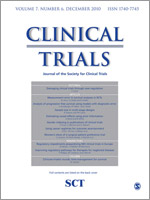Make courses from both schools available to people around the world for free
Distance learners rejoice! Harvard University and MIT jointly announced their new non-profit edX online learning initiative in Cambridge earlier today, which aims to both enhance on-campus teaching and make courses from both schools available to people around the world for free.
“This is the single biggest change in education since the printing press,” said Anant Agarwal, newly-installed president of edX. Despite both schools chipping in $30 million a piece (not to mention a chunk of their respective staffs), edX is an independent entity with Agarwal reporting to the organization’s own board.
Beyond just offering Harvard and MIT courses to scores of avid learners worldwide, the two schools plan to build up the open-source MITx platform which itself was only announced at the end of last year. The goal is to make the platform available other to institutions as well, so they too can jump in and offer their own content. It’s still early days for the platform though, so no additional partners have been announced just yet.
Still, MITx provides quite the framework to begin with. Rather than just providing videos of lectures and scanned class handouts, MITx takes things a step further further with “embedded quizzes, immediate feedback, student-ranked questions and answers, online laboratories and student-paced learning.” Access to these online courses will be free to anyone with an Internet connection, though the issue of monetization quickly came up during the event’s Q&A period.
“The drive is not to make money,” said MIT Provost Rafael Reif. “That said, we intend to find a way to support those activities. There are several approaches we are considering, and we don’t want this project to become a drain on the budgets of MIT or Harvard.”
EdX president/professor Agarwal noted that in the prototype class MITx class he taught, students who passed the course received a free certificate to commemorate their achievement. That should soon change though, as a FAQ posted to MITNews points out that the two schools are considering charging a “nominal fee” for those certificates when a student proves their mastery of a subject.








